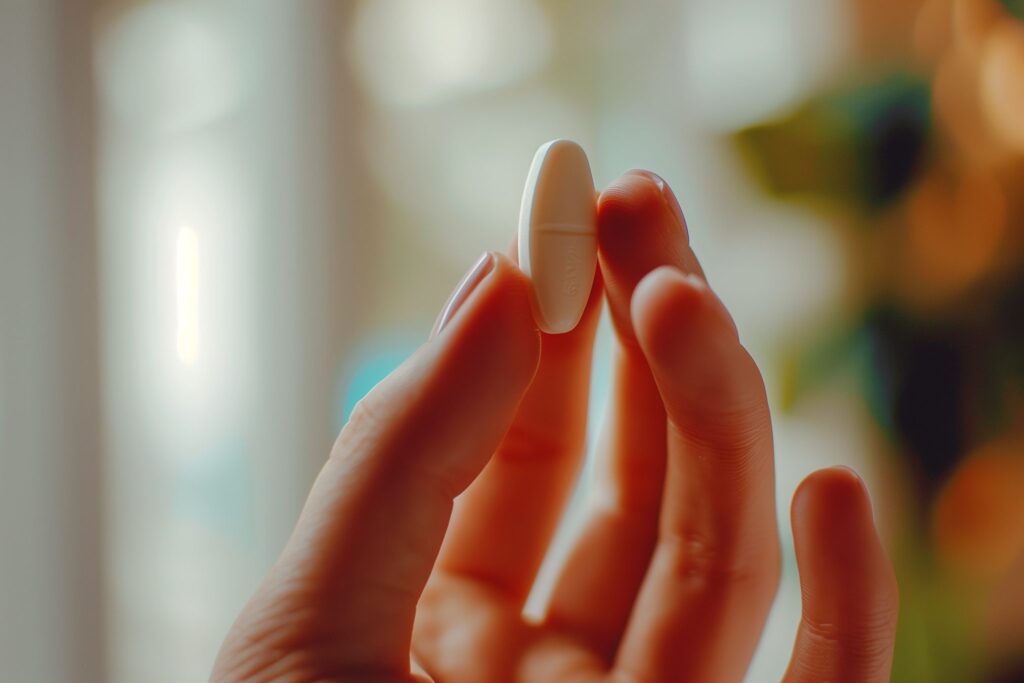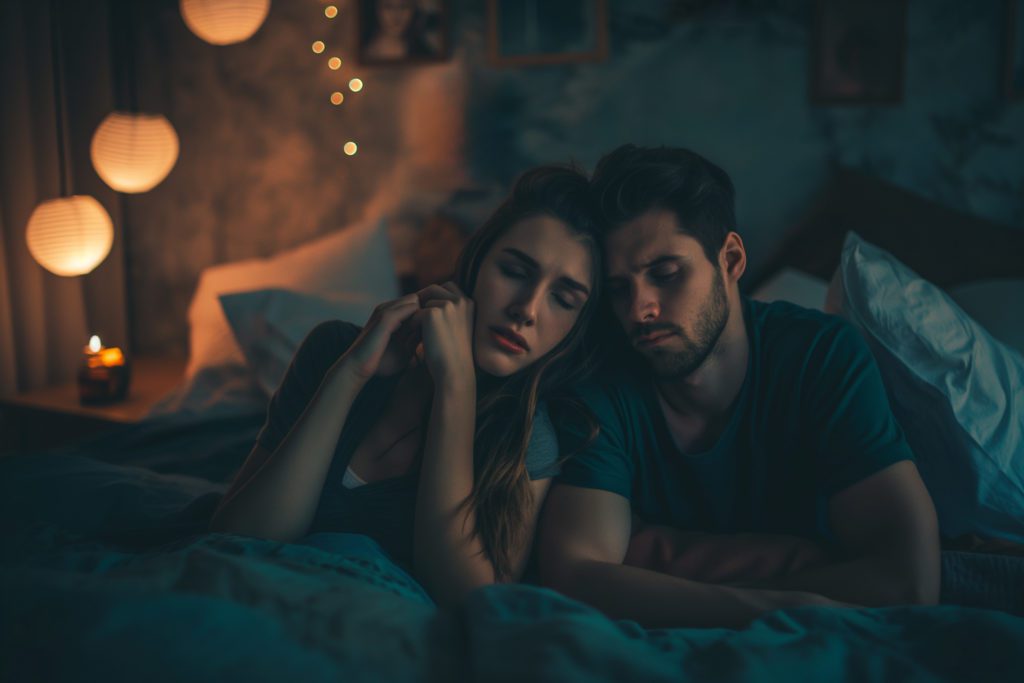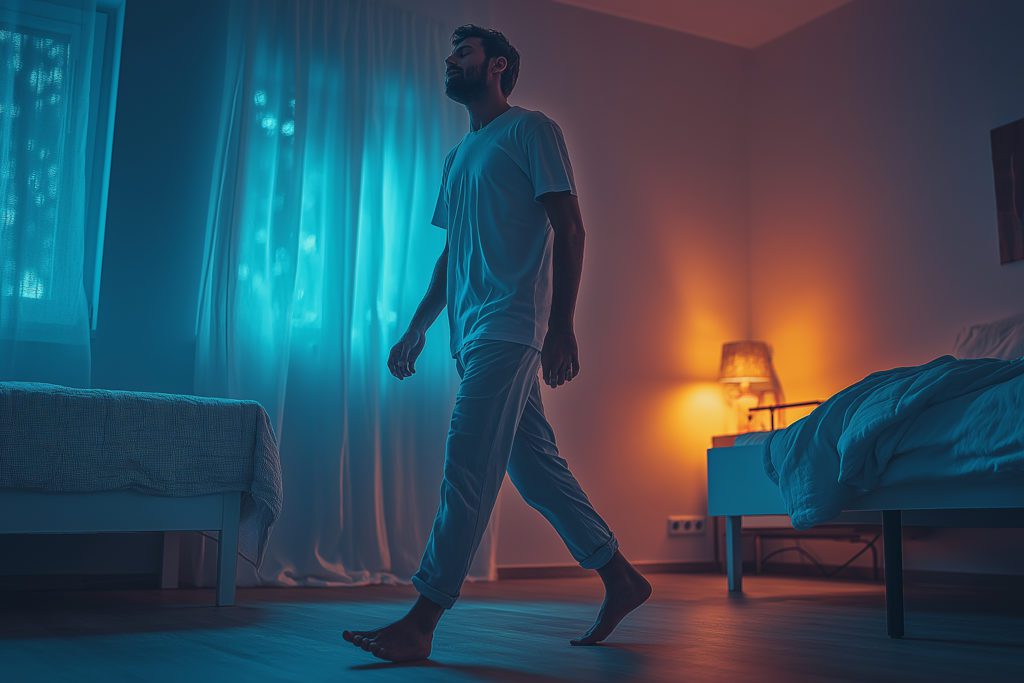
The Impact of Antihistamines on Sleep
Antihistamines treat allergies and nausea, but they can also cause sleepiness. Explore how antihistamines affect sleep and why they’re poor sleep aids.

Antihistamines commonly come with a side effect of drowsiness, which may prompt some people to reach for an antihistamine when they’re having a hard time falling asleep. However, whether you’re taking antihistamines for your allergies or in the hope of falling asleep, they can affect your sleep, and not always in a good way.
Why Are Antihistamines Taken?
Antihistamines are a class of drugs that treat conditions arising from histamines, such as allergies, nausea, and acid reflux. There are two types of antihistamines: those that bind to H-1 receptors and those that bind to H-2 receptors. The former is typically used to treat allergies, while the latter treats gastrointestinal concerns.
Antihistamines, especially the over-the-counter antihistamine Benadryl, are most well-known for their treatment of allergies. However, in addition to suppressing the body’s overreaction to allergic triggers, antihistamines can also cause drowsiness because of histamine’s role in sleep.
Your sleep-wake cycle is controlled by the rise and fall of certain chemicals. For instance, as your body prepares for sleep, histamine levels decline, which helps to induce non-rapid eye movement (NREM) sleep, which encompasses the first three stages of sleep.
Antihistamines can cross the blood-brain barrier, lowering histamine levels in the brain, which mimics the natural decline seen as you fall asleep. Because of this, antihistamines can make you sleepy.
Can You Take Antihistamines To Fall Asleep?
While the drowsiness-inducing effects of antihistamines may make them seem like a wise choice to help you fall asleep, experts do not recommend treating insomnia with antihistamines because there is not enough evidence regarding their safety or effectiveness. Furthermore, there are concerns about the risk of long-term antihistamine usage.
One such concern is regarding the anticholinergic properties of antihistamines such as diphenhydramine, which refers to their ability to inhibit acetylcholine in the peripheral and central nervous system. Given the role of acetylcholine in several brain functions, including thinking and short-term memory, anticholinergic drugs may impair cognitive functioning in older adults. Even more, these impairments can be permanent—functioning may not return after discontinuing the medication.
One case study examining the effects of anticholinergic drugs found that taking them increased the risk of dementia and Alzheimer’s disease even 20 years afterward. Adding to this, another study found that the risk increased based on the cumulative amount of anticholinergic medication taken over time. So, the more anticholinergic drugs you take day after day, the greater your risk of dementia.
How Antihistamines Impact Your Sleep
While antihistamines have been shown to mimic the histamine reduction seen as you fall asleep, promoting sleepiness, they can also alter your sleep during the night.
First-generation antihistamines have been shown to cause changes in sleep patterns, which then leads to increased daytime sleepiness. These antihistamines have been associated with a decrease in REM sleep and REM sleep latency, or a delay in passing to the REM stage of sleep. These delays may then increase the amount of time it takes to cycle through the sleep stages.
In addition to leading to fewer rotations through the sleep cycle, the delay in REM sleep onset may also cause someone to wake during a deep sleep stage when they would otherwise wake during lighter stages. This may contribute to the increasing drowsiness experienced in the morning, even hours after taking an antihistamine and after sleeping all night.
Furthermore, REM sleep is the time when you consolidate and process new information, allowing you to grab onto memories more easily. The decline in REM sleep seen with antihistamines may explain the memory issues that can result from consistent antihistamine use. REM sleep also helps with mental concentration and mood regulation—its deficit may cause you to be in a poorer mood during the day and struggle to concentrate.
How Antihistamines Affect Daytime Sleepiness
If you suffer from allergies, you may be reaching for antihistamines throughout the day, but that may be affecting your energy levels.
Antihistamines, by blocking histamine receptors, can mimic the sleepiness you feel before bed, even if it’s hours off, causing you to feel tired and sluggish during the day.
However, their use at night, such as to help fall asleep, can also cause daytime sleepiness. This is because antihistamines affect your sleep architecture and may result in poorer quality sleep. Furthermore, since they delay your cycling through the sleep stages, if you wake up during a deep sleep stage, you may wake with sleep inertia and be unable to shake it during the day.
Alternative Ways to Sleep Better
If you’re struggling to fall asleep, it’s not recommended to reach for an antihistamine. Instead, try the following:
- Keep a schedule. When it comes to your sleep, try to go to bed and wake up at the same time each day. This helps to regulate your sleep-wake cycle, which also optimizes the natural chemicals and hormones that promote sleep.
- Avoid caffeine late in the day. If you’re having a hard time falling asleep, you may be consuming caffeine too close to bedtime. Avoid caffeine in the afternoon, and if you’re especially sensitive to caffeine, consider cutting yourself off after lunch.
- Avoid electronics before bed. Electronics give off blue light, which can suppress melatonin production, making it hard for you to feel sleepy. Rather than reach for an antihistamine, try avoiding electronics before bed to give your melatonin a fighting chance.
If you suffer from allergies, consider a second-generation antihistamine instead of a first-generation, as these have been developed to reduce their effect on your REM sleep and lower their sedating effect. Some examples of second-generation antihistamines that offer allergy-fighting benefits without sacrificing your sleep include cetirizine and rupatadine.
Sleep Soundly
Antihistamines are commonly used to fight allergies and nausea, but some come with a risk of drowsiness. While this may make them seem like a wise choice to take before bed, even if you don’t have allergies, antihistamines can impact your sleep architecture, leaving you more tired in the morning.
If you struggle to fall asleep at night, rather than reach for an antihistamine, modify your sleep hygiene. If that still doesn’t help, reach out to a healthcare professional for their guidance.
FAQ
I took an antihistamine last night—why am I still tired at noon?
Some antihistamines, especially first-generation ones like Benadryl, can have effects that last way longer than expected. Even if you slept a full night, your body may still be processing the drug, leaving you sluggish well into the next day.
Can taking antihistamines for sleep make me build a tolerance?
Yep! The more often you use them, the less effective they become. Your body adjusts, meaning you might need higher doses to get the same sleepy effect, which isn’t great for your health long-term.
How does histamine affect sleep beyond drowsiness?
Histamine plays a crucial role in wakefulness and cognitive function. It helps maintain alertness during the day and is linked to REM sleep quality. Disrupting histamine levels with antihistamines can alter sleep cycles, reducing REM sleep and impacting memory, concentration, and mood.
I take antihistamines for allergies—does that mean my sleep is worse?
If you're using a first-generation antihistamine, probably. These can disrupt your sleep cycles, meaning you might not feel as rested. A second-generation antihistamine (like cetirizine) could be a better choice since it’s designed to fight allergies without making you drowsy.
Why do I have weird dreams when I take antihistamines?
Since antihistamines mess with your REM sleep—the stage when most dreaming happens—your brain might try to “catch up” on REM later in the night, leading to super vivid or strange dreams.

Written by
Jessica G
Medical writer freelancer who has written hundreds of articles on varying topics. Masters of Engineering degree in Biomedical Engineering.
Download Pillow
Get help
Press & News
Legal
Connect
X (Twitter)
Company
Copyright © Neybox Digital Ltd.



